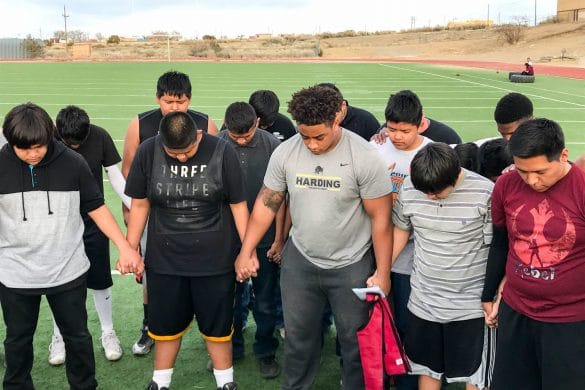Yik Yak, a social media app that connects users in the same geographical location and allows them to post anonymously, was created in 2013 by two Furman University graduates. Since then it has taken college campuses across the U.S. by storm, leaving few states untouched. Last fall semester Yik Yak infiltrated the Harding bubble in a big way, garnering a variety of reactions from students and faculty alike.
According to Cam Mullen, the lead community developer at Yik Yak, the app was initially created to offer three services: to give people the opportunity to post anonymously, to immediately connect people in the same area and to allow the curating of content by the community. Mullen said the anonymity the app provides is what makes the Yik Yak experience unique.
“Anonymity on Yik Yak is a really neat thing because it levels the playing field and content is judged on content alone, and not the person that’s saying it,” Mullen said. “On existing social networks before Yik Yak a lot of it mattered how many followers you had or who you were. On Yik Yak, it doesn’t matter if you’re the football captain with a million followers or the quiet guy in the back of the classroom. You post a Yak and everyone sees it.”
While that may be true, many people feel the anonymity is an unfortunate feature. Junior Casey Stringer said he downloaded the app after being shown some humorous posts by friends, but was overwhelmed by the negativity and gossip and decided to delete it.
“The negative side to (anonymity) is that with every step away from interpersonal contact, you lose a level of accountability — what you can and can’t say,” Stringer said. “Once you introduce anonymity and give it to a mass audience, there’s danger in that. It’s a really good idea in its purest form, but so is communism. It doesn’t work as well as they would suggest.”
Mullen said misuse happens on any app, but the good that comes from it is not to be discounted.
“At Yik Yak we realize there are going to be people who misuse the app,” Mullen said. “It’s a process, and it’s something that we are working on constantly to reduce. There are tools that the community has through the app and tools at Yik Yak headquarters to limit this.”
Although Stringer said there is an abundance of negativity, he also said Yik Yak is not all gossip.
“During one of the ice days I saw someone post ‘hide-n-seek in the science building at this time’ and I know three people who went and had a blast,” Stringer said.
Professor of Bible Andrew Baker said Yik Yak on Harding’s campus seems to be more negative than positive, but that it should not be blown out of proportion.
Baker said he compares Yik Yak to money in the sense that it can be used really well, but if mistreated, it can be destructive.
He also said the way one chooses to use the app, or even using the app at all, is a choice.
“At the end of the day, you don’t have to open it,” Baker said.





